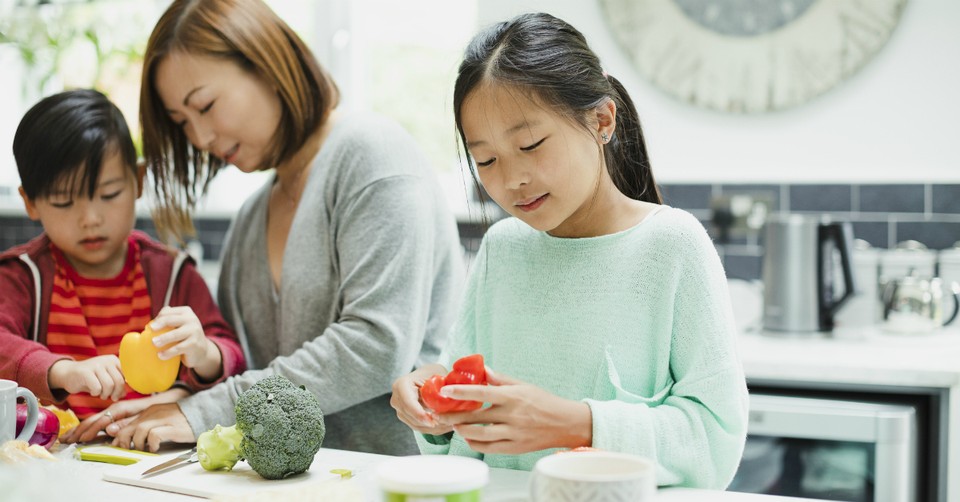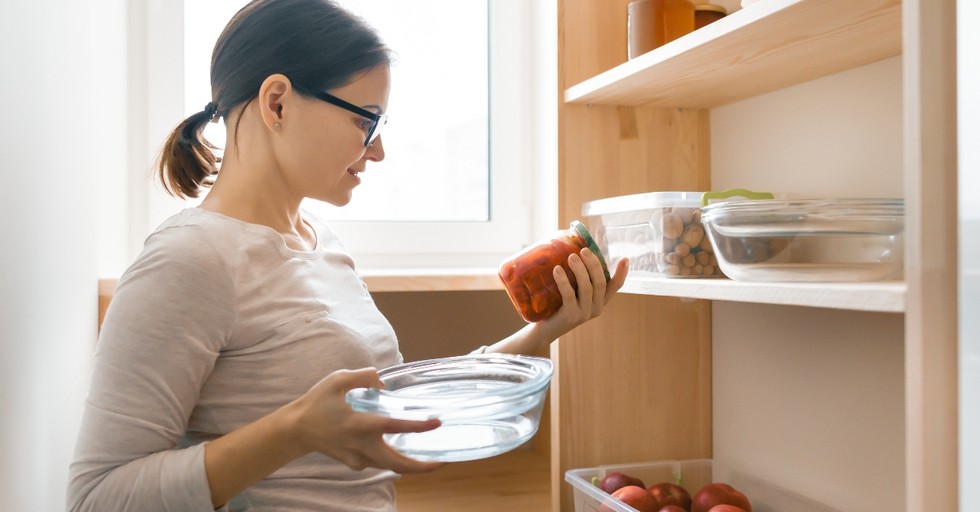How to Help Your Kids Have a Healthy Relationship with Food

Every parent wants to do what they can to help their children develop healthy habits, but it can be such a struggle even to know what it looks like to have a healthy relationship with food. There is so much conflicting information out there about parenting, health, food, and it can be overwhelming!
Just because determining what is healthy for you is hard doesn't mean you should throw up your hands, open that salty bag of chips, and call it a day! It does mean that finding out what healthy looks like for you and your family will take some trial and error, time, research, and probably won't fit in one neat box.
You may wonder if cultivating healthy habits around food really matters or is just vanity. The Bible teaches in 1 Corinthians 6:19-20 that your body is so important to God! It is a precious temple, bought by Jesus at a price, and He charges us to take good care of it. The Bible instructs us to take time for rest, be good stewards of the lives we've been given, which is the exact opposite of the frenzy of endless activity our culture pushes us into. As a person of faith, creating healthy food relationships should be one of our top priorities.
Here are some great tips on how you can help your kids have a healthy relationship with food:
1. Explore Food Together
According to LeeAnn Weintraub, a registered dietitian, taking time to create opportunities for your child to discover new foods can help your child keep an open mind when it comes to tasting unfamiliar foods. Some ways to help them expand their pallet include trying out unfamiliar cuisine at a restaurant together, buying items from your local farmers market to sample, or allowing them to choose something new to try from the grocery store's salad bar. These offer your child hands-on experiences where they have the chance to broaden the scope of foods they are comfortable with.
2. Avoid Using Food as a Reward
This is a tough one! I know in my house, there are many dinners that we bribe our kids into eating by offering them a treat at the end of the meal. Dieticians say that incentivizing our kids with food can foster an unhealthy emotional connection with certain foods. This also feeds into the narrative that some foods are more desirable than others. Choose an activity or gift instead rather than rewarding good grades with an ice cream outing. These emotional connections with certain foods can lead to unhealthy food patterns in your children.
3. Respect Your Child's Hunger Level
How many times have you prompted your child just to take one more bite before they are done with their meal? I am so guilty of this! My daughter loves to take three bites from her dinner plate and declare she is full. It makes me crazy! Dieticians tell us to allow our kids to respect their natural hunger and fullness cues. Each child's appetite varies greatly, and allowing them to articulate if they are hungry or not is an integral part of helping them develop a healthy relationship with food. This does not mean that we allow them to eat snacks freely or ignore dinner. Parents decide what food to serve and when and they get to choose how much to eat at each meal or snack time. If they don't eat much for one meal, they will likely make up for it when they sit down for the next meal.
4. Avoid Labeling Certain Foods as "Good" and "Bad"
All foods can fit within a healthy diet. This does not mean we let our kids only eat candy, but it does mean that we can avoid telling them that eating cake is bad and vegetables are good. Labeling certain foods as off-limits (except in the case of an allergy or health issue) can lead to food issues such as hiding food or overeating when treats are allowed. Rather than saying "we can't eat cookies," try focusing on what foods offer for your kids. One example would be talking about how eating fish helps our brains or how baking cookies is a fun thing to do together. Both comments highlight the ways each of these foods is nourishing.

5. Set a Good Example for Your Children
Our kids are always watching to see if our actions match our words. If we want our kids to enjoy a variety of foods and make healthy food choices, we need to model what that can look like for them. We cannot expect our children to be adventurous eaters or enjoy vegetables if we never try new foods or put vegetables on our plates. If our kids see us overindulge regularly, it will be hard for them to understand the need to use moderation. Also, if we constantly talk about our need to diet or how many foods we are not allowed to eat, it will be hard for them to see food positively. Set a good example for your child, and most likely, they will adopt some of your habits as they grow.
6. Allow Your Kids to Help with Food Prep and Eat Meals Together
There is something special about taking time to cook together. There is something about being involved in the process of creating the meal that you are about to eat that cultivates a special appreciation for it. You can't help but want to taste your own creation! Allowing your kids to choose some items they would like to prepare or would like to have for dinner also enables them to feel more involved in the whole cooking process for your home. Sitting down to eat meals together helps create positive connections with food. The memories of sitting at a table to unwind, connect, and nourish their bodies will help create a healthy food relationship as they grow.
The goal is for our kids to grow to love the stuff that's good for them, enjoy moments of indulgence guilt-free, and understand that what we put in our bodies matters, so we need to think a little before we eat. Food is a great place to teach and practice the lesson of self-control and doing things in moderation (things we all struggle with). Just be sure to approach the subject with love. We want our kids to learn to love nutritious foods, enjoy the more indulgent foods in moderation, and hopefully, as they grow, food can be a source of joy rather than anxiety.
Healthy living is a trajectory, not a destination. Start small, and you will be amazed at the compounding progress you will see over time. Don't let the hype that tells you that you have to change it all at once stop you from starting. Just taking one step towards creating more healthy food habits is a step in the right direction for your family.

Originally published January 26, 2022.







